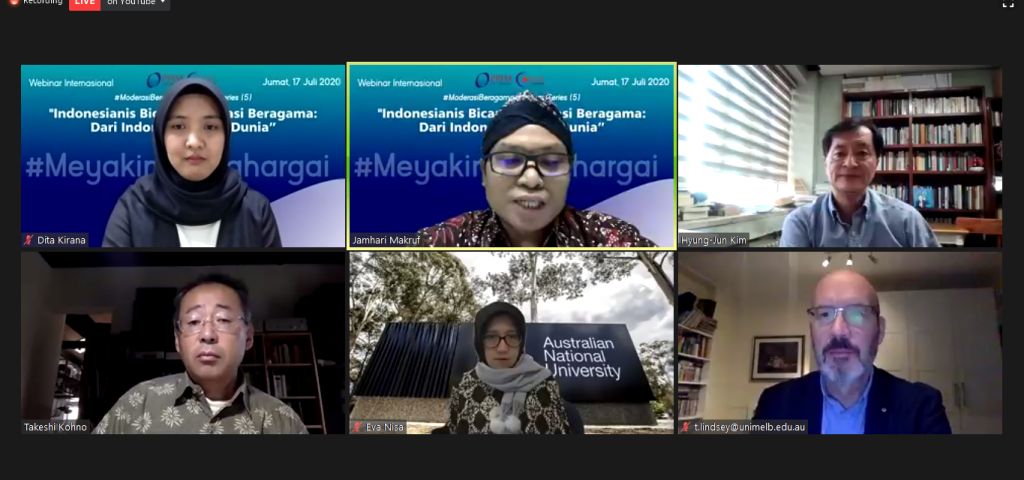Religious Moderation, Key to Behave

International Webinar – Takeshi Kohno: Religious Moderation to Thrive, if….
July 20, 2020
Convey Indonesia Coordinator: Tolerance Must be Practiced, Not Only Taught
July 24, 2020RDK.FIDKOM.UINJKT.AC.ID –
The Center for the Study of Islam and Society (PPIM) of the Syarif Hidayatullah State Islamic University (UIN) Jakarta, in collaboration with the Countering Violent Extremism for Youth in Indonesia (CONVEY Indonesia), organized a virtual seminar on Religious Moderation themed “Indonesianists Talking about Religious Moderation: from Indonesia to the world” on Friday (17/7).
The seminar, aired Live Streaming via Convey Indonesia’s official YouTube channel and Zoom, aimed for disseminating and raising awareness about religious moderation to the public.
So, how do these international academicians see religious moderation in Indonesia?
Professor Tim Lindsey from the Center for Indonesian Law, Islam and Society of the University of Melbourne said that under Soeharto regime, the image of Indonesian Islam was precisely known as tolerant and moderate. This had led a dominant modern discourses by Muslim figures to support the government development programs.
“After Soeharto era, there has been many significant changes in the image and perceptions towards Indonesian Islam. Before that, it was considered as tolerant and open to any compromise,” Lindsey said.
He noticed that madrasah (Islamic schools) acknowledged by the government tended to be higher in number and more accessible compared to pesantren (Islamic boarding schools). He revealed that currently, the number of madrasah and total of their students were three times higher than that of pesantren.
“One crucial thing is that religious teaching only captures a quarter of total curriculum in madrasah, and [the teachers] usually apply contemporary teaching methods. Nevertheless, traditional Islamic teachings can always affect the learning achievement for [students] who will face and compete with other people [who do not graduate from religious schools],” Lindsey said.
Meanwhile, Convey Indonesia Team Leader and the initiator of the seminar, Prof. Dr. Jamhari Makruf, said that in building religious moderation, people should start from themselves by practicing religious teachings in a balanced way, neither to the extremely left nor extremely right. He called on all people to respect diversity and not discriminate against people who have different understandings from them.
“Religious moderation in Indonesia is a God’s destiny. Thus say, it is acceptable for us to spread religious moderation so that we can see and respect differences among us. That is the real characteristic and personality of Indonesian people,” said Jamhari, who is also a member of the Advisory Board of the PPIM.
He added that we could consistently practice religious moderation when expressing our opinions and ideas to the public, respecting diversity and sharing our opinions without triggering conflicts with other people. Religious moderation, he said, should be the key of behaviour.
“This seminar is expected to be able to make Indonesian people know and believe about religious moderation, as well as to break all misunderstandings about it,” Jamhari said.




